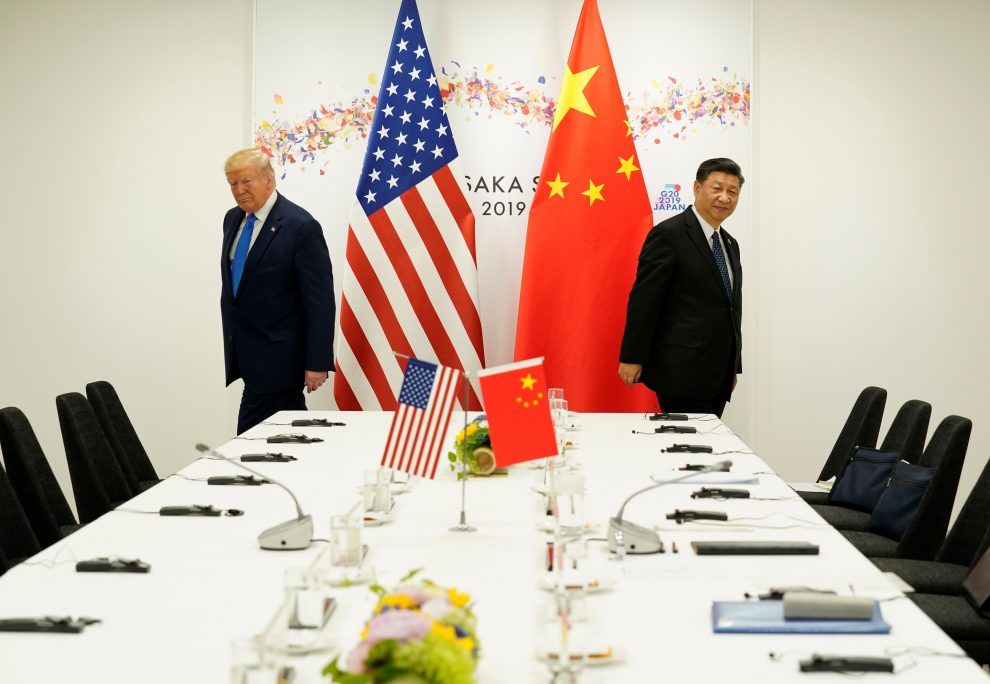
U.S. President Donald Trump attends a bilateral meeting with China’s President Xi Jinping during the G20 leaders summit in Osaka, Japan, June 29, 2019.
Kevin Lamarque | Reuters
Citigroup kicks off earnings season on Monday.
Traders enter with a singular focus on company guidance. Bears believe second-half guidance will be cautious and lower than expected due to slower global growth and the related trade and tariff issues. Bulls argue that dovish global central banks and the likelihood that some kind of trade deal will be reached by the end of the year will win the day.
Here’s the main issue. Earnings for 2019 are essentially “flattish,” but the S&P 500 is up nearly 20%. That has made the market pricey, at over 17 times forward earnings, historically high.
S&P 500: 2019 earnings
- Q1: up 1.6%
- Q2: down 0.3% (estimate)
- Q3: up 0.3% (estimate)
- Q4: up 6.8% (estimate)
Source: Refinitiv
Who’s right, the bulls or the bears? Traders are hedging their bets. Based on the trading action, the market believes that cyclical sectors with global exposure (particularly to commodities) have a high chance of disappointing. Energy, materials and certain industrials have underperformed in the last several months.
Cyclicals underperform
(Since May 1)
- S&P 500: up 2%
- Materials: flat
- Energy: down 3%
- Transports: down 4%
Conversely, the market believes that defensive and domestic sectors with less exposure to the global economy will have less chance of lowering expectations. Health care, real estate, utilities, and to some extent consumer staples have all outperformed.
Defensives outperform
(since May 1)
- Health Care: up 4%
- Utilities: up 4%
- Real Estate: up 3%
- Consumer Staples: 3%
It’s early, but there are signs there is good reason to be cautious about companies with global exposure.
Fastenal, which makes tools, motors, and fasteners, and sells to many companies, reported lower revenues and lower gross margins on higher costs largely related to tariffs.
Vishay, a semiconductor company, pre-announced June sales well below expectations, supporting other semiconductor companies that have noted an inventory correction and pricing pressures.
Where does this leave us?
The market seems comfortable with “flattish” earnings, but those earnings could quickly go from “flattish” to “negative” if there is no trade agreement and will certainly go negative if tariffs increase.
Earnings thus hinge on trade and the extent of the global slowdown. Reverse those negatives, and a positive case can be made for earnings to expand, which is exactly what John Stoltzfus, Openheimer Asset Management’s Chief Investment Strategist, said in a recent note: “We continue to see opportunity for previously lowered consensus estimates to be revised higher with a realization of a trade agreement between the US and China that would likely boost expectations for global economic growth.”
But if the global economy continues to slip, the bull case begins to evaporate, which is what Francois Trahan, UBS Strategist, believes could happen: “The negative feedback loop sees earnings start to decline, which ushers in a ‘glass half empty’ mentality on the part of investors resulting in P/E compression. That is our chief concern at this stage.”
Buckle up. This could go either way.












